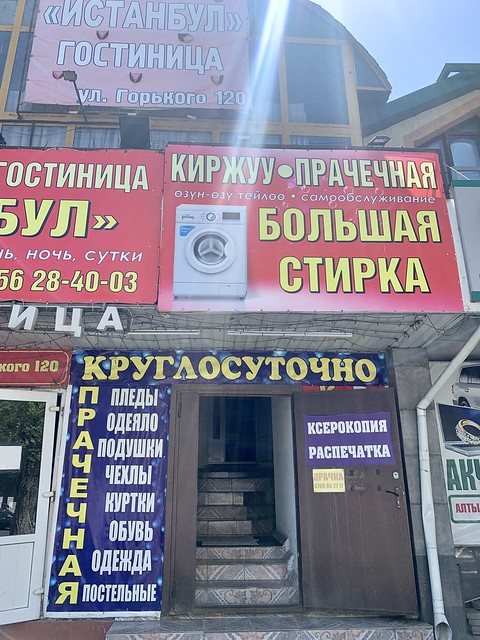Language barriers
By An V.
Aug. 10, 2021
The language barrier I experienced in Kyrgyzstan initially made me feel quite alienated. On the first day, when I visited the supermarket and asked if they had a certain item, the cashier did not understand me. She neither understood nor could speak English, so I stood there struggling to communicate until she pulled out her phone so we could have an exchange over Google Translate.
This was the first country I have traveled to in which I did not know the language; neither Russian nor Kyrgyz. Everything used the Cyrillic script here, from road signs to menus, which surprised me. As described by one of our lecturers later on, “Knowing English is a privilege in Kyrgyzstan.”
I was aware of the duality of my identity here, however, when locals would acknowledge me first when traveling with our group throughout and speak to me in Kyrgyz or Russian. I would just stare back at them blankly until our translator came to the rescue. Several people told me I blended in, could pass as Kyrgyz due to my Asian identity. My appearance made me seemingly the same as those here, but my language skills were a great difference. It was a paradox amplified by the fact that I was the only Asian American in our study abroad group.
An incident that reminded me of this difference was when we met with local students who are learning English. The large group was in awe at seeing foreigners for seemingly the first time. The kids surrounded our group and asked to take pictures, staring at how different most of us looked. However, I was aware that more eyes were on the white Americans than me, essentially making me realize how there is a duality to my ethnic identity; not completely being part of one group or another in this scenario.
One skill that I was able to improve on through the language barrier was cross-cultural communication. With those who neither understood nor spoke English, using nonverbal communication and context clues was greatly needed. This included pointing, nodding, etc. To those whose English skills were proficient but not advanced, I took the lead from our faculty leader and spoke slowly and enunciated clearly for effective communication. I learned to choose my words purposefully and use more common, simple vocabulary.
To listen well, I tried to connect broken English sentences to figure out what they meant, and repeated their message for them to confirm. As a last resort, I pulled out Google Translate. I also learned to avoid using culturally-relative humor because the other might not understand.
Overall, being in a country where most people did not speak English served as a great challenge but also opportunity to learn and develop cultural competency.

